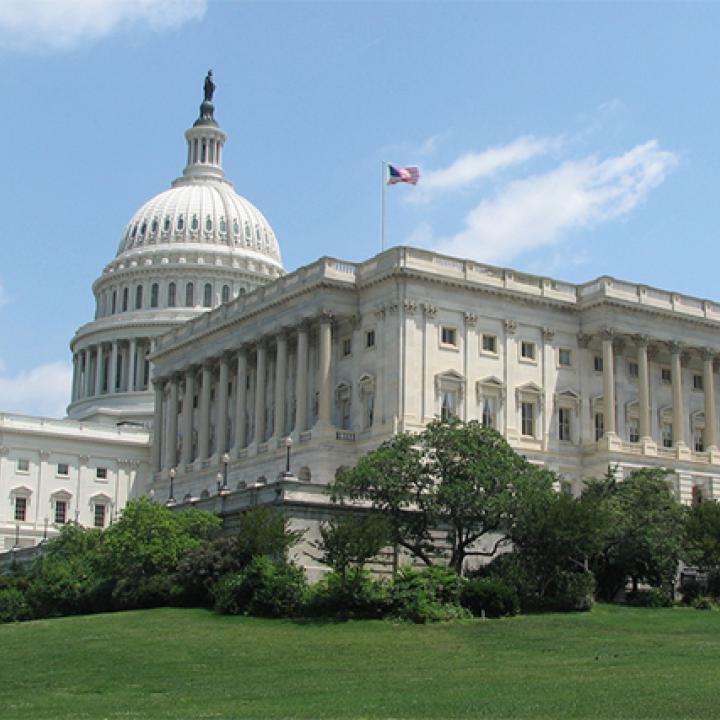
- Policy Analysis
- Congressional Testimony
The Nuclear Deal with Iran: Regional Implications

While the agreement has a number of significant flaws, at least some can be rectified by various mitigation measures, provided the president is willing to commit to an effective implementation strategy.
The following is an excerpt from Eisenstadt's prepared remarks; to read his full testimony, download the PDF.
Ensuring successful implementation of the nuclear deal with Iran will pose major challenges. It will require ongoing engagement with Iran, the management of tensions deriving from Iranian regional activities, and tending to the credibility of Washington's nuclear redline -- the commitment to use "all necessary measures" to keep Iran from the bomb.
To ensure it achieves its intended goals, the U.S. needs a credible implementation strategy that addresses the deal's flaws, shows zero tolerance for cheating, and pushes back at Iranian activities that undermine its interests and threaten its allies, as a means of bolstering the credibility of its commitment to deter an Iranian nuclear breakout. The main elements of such a strategy should include the following:
Eliminate ambiguities. Differing interpretations of the JCPOA are inevitable, since many of the articles do not lend themselves to a plain reading. And as those who negotiated the agreement move on to other jobs, and memories fade, it will be easier for Iran to contest the E3/EU+3's understanding of the agreement. Accordingly, the U.S. and its EU partners should publish a document that sets down their joint understanding of the meaning of as many ambiguous JCPOA articles as possible, to avoid future friction among the allies, to prevent Iran from exploiting ambiguities in the text, and to deter it from testing the agreement.
Block Iran's arms exports. U.S. officials claim that the nuclear accord bans Iranian arms transfers. Iran denies this is the case. Iran's arms transfers have fueled sectarian tensions and violence in the region, thereby undermining the U.S. campaign against ISIS and al-Qaeda and its affiliates. To deter further Iranian cheating and defuse regional violence, the U.S. and its allies should interdict future Iranian arms transfers and work to create a more moderate third way in Syria by arming members of the opposition there, in the hope of drawing off support from extremists. By pushing back against Iranian activities that violate the JCPOA and that undermine its interests by stoking violence in the region, the U.S. may also deter Iran from additional challenges to the nuclear accord.
Deter a nuclear breakout. The nuclear accord does not block Iran's path to the bomb; at best, it may defer the problem for an indeterminate amount of time. For this reason, deterring Iran from developing or acquiring nuclear weapons will remain the core imperative driving U.S. policy in the coming years. To do so, Washington needs to convince Tehran that if it tried to build a bomb, it would get caught, and would suffer unacceptable consequences: the reimposition of sanctions, and the use of force to block it from the bomb. The U.S. and the EU need to respond firmly to even small Iranian violations of the agreement with a series of calibrated responses, lest laxity invite new challenges. And President Obama needs to sharpen America's nuclear redline by eschewing passive formulations regarding "options on the table," embracing unequivocal formulations that pledge the use of "all necessary measures" to block Iran from the bomb, and taking actions that demonstrate a willingness to do so if necessary.
Military deterrence is a wasting asset -- develop alternative options. Finally, the U.S. should recognize that given technological trends, the conventional military option against Iran's program is a wasting asset. By the time that the core provisions of the nuclear accord expire 10-15 years hence (assuming the accord remains in force at that time), Iran is liable to have much more robust air defenses (S-300s or better) and the means to ensure that a clandestine program is immune to a conventional U.S. strike. Iran has used past suspensions to advance parts of its program, and it will be sure to do so in this case. Accordingly, the U.S. should consider alternative ways of deterring an Iranian nuclear breakout when the Massive Ordnance Penetrator bomb -- the conventional weapon of choice for use against deeply buried, hardened facilities -- is no longer a viable option. These alternative options might include cyber and other forms of sabotage, and threats to destabilize the Islamic Republic by means of a campaign of political warfare.
In sum: while the nuclear deal has a number of significant flaws, at least some can be rectified by a number of mitigation measures, which provide the basis for an effective implementation strategy. President Obama's willingness to commit to these measures and to such a strategy will be a leading indicator of whether the nuclear deal with Iran will achieve its intended goal of blocking Iran's path to the bomb, or will further destabilize the Middle East, further hasten the decline of America's fortunes in the region and beyond, and eventually pave the way for the emergence of Iran as a nuclear weapons state.
House Armed Services Committee




